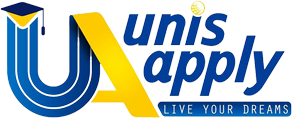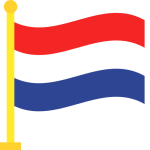Work migration to the Netherlands is one of the main pathways for immigration to this country. Nowadays, many individuals are seeking to migrate to the Netherlands through employment. For work migration to the Netherlands, a job offer from a company or employer in this country is required. The unemployment rate in the Netherlands is less than 3.7%, meaning that a small number of individuals are unemployed, which makes the conditions for work migration to the Netherlands easier. This rate indicates favorable economic conditions in the Netherlands, and many applicants consider the decision to migrate to the Netherlands by examining the economic conditions and unemployment rate. Individuals who successfully obtain a work visa in the Netherlands can receive permanent residency after 5 years of work and tax payment in this country.
The working conditions in the Netherlands are generally as follows:
• Generally, there is no need for a work permit to work in the Netherlands unless you are from a non-European Union country or from one of the European Union countries with special exceptions.
• The company or organization you work for usually enters into an employment contract with you, which includes details related to the job, salary, working hours, leave conditions, and other relevant matters.
• Workers’ salaries in the Netherlands are high and include benefits and additional rights such as bonuses, annual leave, supplementary insurance, and social security.
• The standard working hours in the Netherlands range from 36 to 40 hours per week, and most employers allow their employees to work overtime.
• Employers usually provide appropriate breaks during the day and annual leave to their employees.
• In the Netherlands, there is a comprehensive social insurance system that includes health insurance, social security insurance, unemployment insurance, and retirement insurance. Individuals who work legally in the Netherlands must join the Dutch social insurance system. Usually, the social insurance contributions are deducted from workers’ salaries, and employers are also obliged to contribute a certain amount as their share in this insurance.
To obtain a work visa for the Netherlands, you need to prepare the necessary documents. These documents include:
1. A valid passport
2. Accurate and up-to-date application information
3. A certificate of no criminal record
4. Passing the tuberculosis test (mandatory)
5. Proof of financial means
6. Identification by government authorities for employers hiring foreign workers for employment in the Netherlands
Healthcare in the Netherlands: Healthcare services in the Netherlands are provided in private hospitals and clinics. Most hospitals in this country are privately owned, which leads to relatively high treatment costs. However, the quality of healthcare services in the Netherlands is excellent, and the hospitals are considered among the best in the world.
When looking to work in the healthcare sector in the Netherlands, it is advisable to start your job search before traveling to the country. Websites like EURES and werk.nl can help in finding job opportunities. These websites collaborate with various labor market players in the European Union/EEA and Switzerland. EURES is available in 26 European languages, and you can upload your resume on their website for potential employers to review. Furthermore, following EURES on social media can keep you informed about job openings and related events in the Netherlands.
The process of migrating as healthcare personnel to the Netherlands involves the following stages:
- Assessment of necessary requirements: To be eligible to work as a healthcare professional in the Netherlands, it is essential to have an educational qualification from a recognized institution in the healthcare field in your home country.
- Gathering necessary documents: The next step is to collect all the required documents and submit them to the Ministry of Health, Welfare, and Sport (VWS) for evaluation of your qualifications and skills based on Dutch standards.
- Language proficiency certification: To work as a healthcare professional in the Netherlands, you must have a Dutch language proficiency level of B2 or higher on the Common European Framework of Reference for Languages (CEFR) scale. In some cases, a C1 level may be necessary.
- Registration in the BIG Register: Once you have obtained the required language certification and gathered all necessary documents, you must register with the Dutch Medical Council (BIG Register). This registration ensures that your credentials are up to date, that you comply with Dutch healthcare standards, and that you have a good command of the Dutch language.
- Participation in licensing examinations: To have your educational qualifications recognized, you must take the AKV exam in the Netherlands, as well as the BI-toets, which are mandatory for obtaining a license.
- Obtaining a job offer: To migrate to the Netherlands as a healthcare professional and start working, you need to have a valid job offer from a Dutch employer.
- Obtaining a work visa: To enter the Netherlands and work as a healthcare professional, you require a Dutch work visa. Depending on your circumstances, you may be eligible to apply for a Highly Skilled Migrant visa or a European Blue Card.
For healthcare personnel migrating to the Netherlands and the recognition of qualifications, the following steps need to be followed:
- Registration in the BIG Register
- Participation in AKV and BI-toets examinations
- Residence permit application
Please note that the required documents for registration in the BIG Register may vary depending on the country where you obtained your diploma. Additionally, the process of qualification recognition and the stages involved may vary, taking between 1 to 2 years to complete.
For all healthcare professions, registration with BIG is mandatory. BIG is a legal, online, and public register for individual healthcare service providers. Only those who are registered with BIG are authorized to use protected professional titles and can carry out independent actions related to their profession. In the case of foreign credentials, healthcare professionals must officially validate their qualifications before registration. Your credential must be at least equivalent to a Dutch qualification.
Migration of nurses to the Netherlands:
The stages of nurses' migration to the Netherlands:
Nurses who wish to migrate to the Netherlands must, like other skilled migrants, apply for a work visa. The first step in nurses’ migration to the Netherlands is finding employment in one of the country’s hospitals or medical clinics, whether public or private.
To find employment in the Netherlands, one can utilize online job portals, newspaper advertisements, and search the websites of hospitals and clinics. After finding a desired job, the individual must submit their educational and work resumes to the relevant employer.
Ensuring the credibility of educational credentials in the Netherlands is essential, and nurses must also obtain Dutch nursing certification. Foreign nurses intending to work in the Netherlands must have fluency in the Dutch language and comprehension. To achieve this, they can participate in Dutch language courses to improve their skills. Some hospitals and clinics may provide support to foreign nurses, especially those who do not speak Dutch, by assisting them in the language learning process.
After completing the migration process and commencing work in the Netherlands, foreign nurses may experience certain cultural differences and differences in the healthcare system. To adapt smoothly to their new work environment, they can maintain communication with their colleagues and other local staff and benefit from their experiences. Additionally, participating in courses and training related to the Dutch healthcare system can assist them in the process of adjusting to the new work environment.
Overall, migrating as a nurse to the Netherlands can provide a good opportunity for professional and career development. However, caring for youth, the elderly, and patients in a new country entails responsibilities and challenges, and the importance of mastering the local language and familiarizing oneself with the Dutch healthcare system is crucial for success in this experience.
Nursing Recruitment in the Netherlands:
1. Registering and submitting educational documents, work experience, and skills to websites such as Indeed and Nursing.nl
2. Introducing oneself to desired hospitals based on specialization and interests
3. Participating in personal or video interviews to assess specialized skills
4. Receiving a job offer from the desired hospital and signing a contract
5. Obtaining a work permit from the Dutch Ministry of Health
6. Registering with the Dutch Nursing Association and receiving a membership number
7. Commencing work at the hospital with clinical and administrative training
Requirements for Nursing Employment in the Netherlands:
1. Validation of nursing degree by the Dutch Ministry of Health
2.Academic resume in English or Dutch
3. Medical health certificate
4. At least a bachelor’s degree in nursing
5. Proficiency in Dutch and English languages
6. Passing the Dutch language exam
7. Valid passport
Conditions for Immigration to the Netherlands with a Nursing Degree:
1. Identification and understanding of requirements: Familiarize yourself with the professional and legal requirements for working as a nurse in the Netherlands through research.
2. Educational and professional documents: You need to translate and authenticate your educational and professional documents.
3. Local language: Language proficiency can have an impact on your success in immigration and employment as a nurse.
4. Work permit: You need to review the requirements and obligations for obtaining a nursing work permit in the Netherlands.
5. Financial transfer and insurance: You need to examine the financial requirements, insurance, and taxation matters related to living and working in the Netherlands.
Migration conditions for nurses to the Netherlands depend on several factors. The following categorization outlines these conditions:
1. Educational and Specialization Requirements:
To migrate as a nurse to the Netherlands, you must possess a valid nursing degree. This degree should be issued by an accredited university or institution in your country. Additionally, certain nursing skills and specializations may have specific requirements.
2. Language:
Proficiency in Dutch or English is essential. Some institutions and hospitals may require knowledge of the Dutch language, while others may allow you to work with English. Nevertheless, strong language skills are necessary for professional work and communication with patients and the healthcare team.
3. Work Experience:
In some cases, work experience in the country of origin is desired for migrating as a nurse to the Netherlands. Typically, this experience is a minimum of one to two years, but it may vary depending on specialization and specific requirements.
4. Work Permit:
To work as a nurse in the Netherlands, you must possess a valid work permit. You need to approach a hospital or healthcare institution in the Netherlands and submit a work permit application. The application process may involve document verification, work experience assessment, and interviews.
5. Salary Negotiation and Employment Conditions:
Nurses in the Netherlands enjoy favorable salary and employment conditions. Some institutions may offer proposals regarding salary, working hours, and additional benefits. Before migration, it is advisable to familiarize yourself with your financial and job conditions and carefully review the employment contract.
Please note that this is only a general overview of the conditions for nurses’ migration to the Netherlands. For more accurate and up-to-date information, it is recommended to contact immigration consultants of Rom Visa. They can provide more precise guidance on the conditions and the process of migrating to the Netherlands as a nurse.


